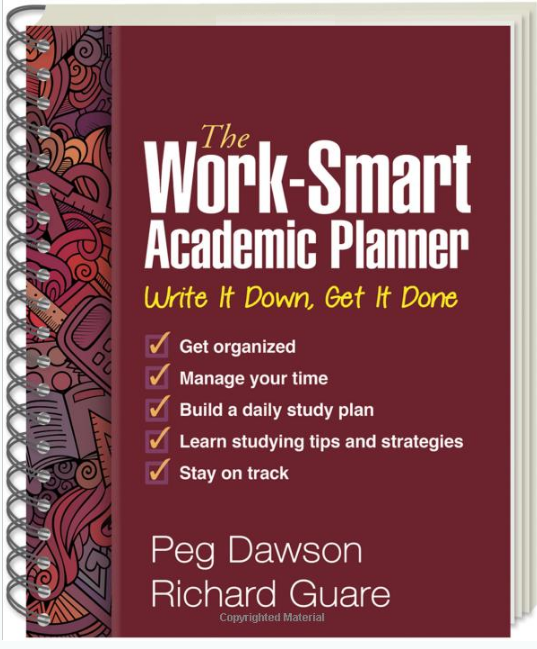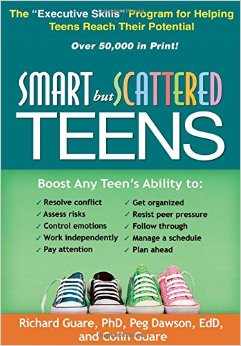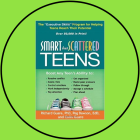Tag Archives:study skills
TED Talk: The Power of Believing that You Can Improve by Carol Dweck, PhD (video) share
Think about the difference, emotionally, between these two statements:
- I can’t ride a bicycle.
- I can’t ride a bicycle, yet.
For me and, studies show, for a lot of other people, the first sentence communicates a limitation. The second sentence is full of possibility. That’s not to say that everyone who says that they can’t ride a bicycle believes that they will never develop that ability. It just means that the second sentence clearly leaves the door wide open for growth to occur.
Psychologist, Carol Dweck, is a professor and researcher at Stanford University. She has spent a considerable amount of her professional life focused on trying to deepen our understanding of motivation. What makes people do what they do? In the TED talk below, she speaks about the results numerous studies, all lending significant support to the idea that, when students know that intelligence/skill is something that can be nurtured and improved upon, they are more likely to:
- be curious and want to learn new things (throughout your entire life)
- put a lot of effort into trying to learn more and more
- confront uncertainties rather than avoid them, allowing yourself to take chances and make mistakes for the sake of eventually getting better
- take constructive feedback as an opportunity to improve rather than as a personal criticism
- be inspired by others who are better than you rather than intimidated by them.
In one of her studies, a large number of students were divided into two groups. One group was told, simply, that they were smart kids. The other group was taught scientific facts about the brain and learning. It was explained to them that, “when they step out of their comfort zone to do hard things and they stuck to them, the neurons in their brains can form connections, stronger connections, and over time, they [the kids] could get smarter.” The current term in the literature for this is “neuroplasticity.” The study found that students who learned that trying things helps them become smarter showed greater motivation in school, better grades, and higher test scores.
For more information regarding this way of thinking, be sure to check out the other items in Skills Worth Working On, by clicking on the “Growth Mindset” tab.
The Work-Smart Academic Planner: Write It Down, Get It Done by Peg Dawson EdD & Richard Guare PhD share
 A review of this is yet to come. I have ordered my copy… just learned that this planner exists! Amazon reports that it’s geared to kids in 6-12th grades. These authors have two other books that I recommend, Smart but Scattered & Smart But Scattered Teens. The authors’ do a great job of making things understandable in a way that doesn’t leave the reader feeling stupid. When you struggle with these skills, it can be easy to get down on yourself. These authors can do a great job of pulling you back up to feeling like you are smart and capable. So, this letter might be worth having.
A review of this is yet to come. I have ordered my copy… just learned that this planner exists! Amazon reports that it’s geared to kids in 6-12th grades. These authors have two other books that I recommend, Smart but Scattered & Smart But Scattered Teens. The authors’ do a great job of making things understandable in a way that doesn’t leave the reader feeling stupid. When you struggle with these skills, it can be easy to get down on yourself. These authors can do a great job of pulling you back up to feeling like you are smart and capable. So, this letter might be worth having.
* I don’t make any money from the books that I recommend. My reviews are solely based on wanting to let people know what’s out there and could be helpful to them.
Smart But Scattered Teens by Richard Guare, PhD, Peg Dawson, EdD, and Colin Guare share
 With a sense of humor and practicality, the authors of this book provide concrete, step-by-step ways to take a look at your teen’s (and yours!) strengths and weaknesses in terms of organization and planning. They then provide information about how people’s brains work and how having “executive functioning” challenges effects people’s day-to-day lives. They guide you through ways to improve these types skills with respect and compassion. The thing I like most about this book is that they emphasize that people with very smart brains can struggle with these skills. Geared to the 13 and up crowd, they also have companion books for younger kids (Smart but Scattered) as well as a new, Work-Smart Academic Planner that I’m excited to be checking out!
With a sense of humor and practicality, the authors of this book provide concrete, step-by-step ways to take a look at your teen’s (and yours!) strengths and weaknesses in terms of organization and planning. They then provide information about how people’s brains work and how having “executive functioning” challenges effects people’s day-to-day lives. They guide you through ways to improve these types skills with respect and compassion. The thing I like most about this book is that they emphasize that people with very smart brains can struggle with these skills. Geared to the 13 and up crowd, they also have companion books for younger kids (Smart but Scattered) as well as a new, Work-Smart Academic Planner that I’m excited to be checking out!
* I don’t make any money from the books that I recommend. My reviews are solely based on wanting to let people know what’s out there and could be helpful to them.



